Kismet

Brief Synopsis
Cast & Crew
Vincente Minnelli
Howard Keel
Ann Blyth
Dolores Gray
Vic Damone
Monty Woolley
Film Details
Technical Specs

Synopsis
In old Baghdad, the impoverished Poet and his beloved daughter Marsinah go to the marketplace to sell Poet's rhymes for food. When they separate, Poet finds a good spot for begging but is told by other beggars that his spot is reserved for Hajj. Poet receives alms from Omar, an advisor to the Caliph, who complains that Poet is not Hajj, then increases his donation when Poet asks for more. With his fortunes rising, Poet ponders the wonders of fate when he suddenly is abducted by men who take him to the desert tent of Jawan, an elderly, notorious thief. Poet thinks he will be sold as a slave, but Jawan, who assumes that Poet is Hajj, orders him to reverse the curse Hajj put on him fifteen years earlier. After the curse, Jawan's beloved son was kidnapped and he has been looking for him ever since. Recognizing an opportunity, Poet asks for one hundred gold pieces to reverse the curse, and Jawan agrees. Poet then tells Jawan to go to Baghdad to find his son, and Jawan and his men break camp, leaving Poet with a purse filled with gold. In Baghdad, while Jawan looks for his son, a huge procession takes place to welcome Lalume, favorite wife of the Wazir, back from Ababu. Lalume tells Wazir that the king of Ababu is willing to give him a badly needed loan amounting to ten camels laden with gold, if Wazir arranges for one of his three daughters to be the main wife of the young Caliph. Meanwhile, Caliph, who has been traveling incognito during the yearlong mourning period for his late father, sees Marsinah and is immediately attracted to her. Now Poet, who is dressed in new finery, greets Marsinah and tells her they are rich and he can buy her anything she wants. She is worried that he has stolen the money, but he assures her that he has come by it honestly. After giving her money to shop, Poet buys several attractive female slaves but is arrested by Wazir's guards because his purse carries the insignia of a wealthy family that was robbed. At the same time, Caliph approaches Marsinah in a garden but does not tell her his name, and she thinks he is a gardener. They fall in love and agree to meet in the garden that night. Later, in Wazir's court, Poet is charged as a thief. Lalume, who is observing, is impressed with Poet's looks and gift for words and convinces her husband to let Poet speak. As Poet tells the story of how he obtained the purse of gold, the recently captured Jawan is brought before Wazir and angrily confirms Poet's story. Jawan is shocked to see half of an amulet around Wazir's neck, and when Wazir says that he has had it since childhood, Jawan produces the other half, proclaiming Wazir to be his long-lost son. Wazir is impressed with Poet's powers, but sends Jawan to the dungeon, reasoning that Wazir cannot have a thief for a father. While Wazir is thinking about a curse that Poet has just placed upon him, Caliph briefly enters the court to announce that the period of mourning is over and he will be assuming his royal duties and taking a bride that night. Wazir assumes that Poet's curse has worked and, worried that his plans for the loan from the king of Ababu will be ruined, takes Lalume's advice and offers to return Poet's gold and raise him to the rank of Emir, if he reverses the curse. Poet happily accepts, and when Wazir leaves him alone with Lalume, the two realize they have similar temperaments. She says that her "so-called marriage" to Wazir has made her perpetually bored and she is attracted to Poet's belief in fate. A short time later, trumpets are heard through the city, and Wazir tells Lalume and Poet that Caliph is going to claim his bride. Annoyed that the curse has not yet been reversed, Wazir orders Poet confined to the palace. Poet then orchestrates an elaborate curse reversal ceremony that enables him to sneak out of the palace while Wazir is distracted. Poet goes to the garden and finds Marsinah, who is curious about the lavish procession approaching. Although she wants to wait for her rendezvous, Poet convinces her that his life depends upon their immediately fleeing Baghdad. Poet relates everything that has happened until word spreads through the marketplace that Caliph came to claim his bride but the woman was not there. Overjoyed that his curse reversal ceremony seemed to have worked, Poet gives Marsinah his gold and, dismissing her apprehensions, returns to the palace to become an emir. At the palace, Wazir tells Lalume that he is now is certain Poet has supernatural powers and must be killed because of what he knows, but Lalume convinces him to keep Poet in the palace and use his power. When Poet returns, Wazir tells Lalume to care for him. Once Lalume and Poet are alone, he tells her that he is worried about his daughter and she suggests that he bring her to live in the palace. After sending for Marsinah, Poet enjoys Lalume's company, but is careful to avoid incurring Wazir's jealousy. When Marsinah arrives, she tearfully confesses to her father that she has fallen in love but does not even know her beloved's name. Lalume then has Marsinah dressed in finery and hidden in the harem for her own protection. Unknown to them, while Caliph's men are searching Baghdad for Marsinah, he goes to speak with Wazir, who suggests that he marry the three princesses and take pleasure in the harem. When Caliph sees Marsinah walk into Wazir's harem, Wizar is shocked to discover that Caliph's intended bride is there but happy that she cannot, therefore, marry Caliph. The disappointed Caliph then says that he will take another bride that night. Wazir quickly learns Marsinah's identity and tells her that they will be married, with a certificate dated the previous month. Later that night, despite the beauty of the women presented to him, Caliph accepts none as his bride. When Wazir privately congratulates Poet on bringing Caliph's true love to the protection of the harem, Poet realizes that Caliph is Marsinah's beloved and pretends to do a trick that results in Wazir being held under water in a pool. As Wazir struggles, Poet asks Caliph what sentence would be given to a murderer and torturer who also cost him his bride. Caliph answers "death," after which Poet says the sentence has been carried out then runs away. When the guards retrieve Wazir's body, they find that he is still alive. They capture Poet, who is about to be put to death when Caliph arrives. At that moment, Caliph sees the weeping Marsinah, and Lalume explains everything. Caliph now sentences Wazir to death and tells Poet that he must go into exile. Poet agrees, but asks to take the soon-to-be-widowed Lalume with him. Caliph agrees and happily sentences himself to a life with Marsinah.

Director
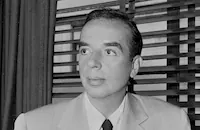
Vincente Minnelli
Cast

Howard Keel
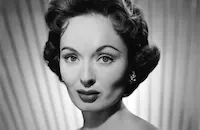
Ann Blyth

Dolores Gray
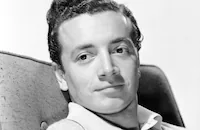
Vic Damone

Monty Woolley

Sebastian Cabot

Jay C. Flippen

Mike Mazurki
Jack Elam
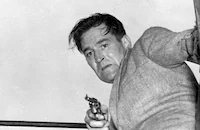
Ted De Corsia
Patricia Dunn
Reiko Sato
Wonci Lui
Julie Robinson

Nita Bieber
Jack Dodds
Marc Wilder
June Kirby
Gloria Rhoads
Maria Tsien
Suzanne Ames
Luana Lee
Dulcy Jordan
Vera Francis
Ross Bagdasarian
Diana Norris
Donna Norris
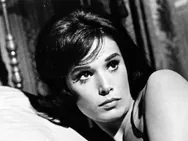
Barrie Chase
Pat Barker
Virginia Lee
Vera Lee
Hamil Petrof
Herman Boden
Buddy Bryan
Reed Maxcy
Naji
Reginald Lal Singh
William Bagdad
Bruno Ve Sota
Don Orlando
Marc Krah
Jean Hartelle

Mel Welles
Alan Lee
David Hoffman
Aaron Spelling
John Bleiffer
Charles Wagenheim
Norbert Schiller
Nick Thompson
George Wandell
Leonard George
Norman Leavitt
Ray Aghayan
Sam Hunter
Sam Scar
George Khoury
Jameel Farah
Noel Cravat
Frank Mitchell
Phil Rich
Frank Radcliffe
Bernie Hamilton
Kimo
George Bruggeman
George Keymas
Ethan Laidlaw
Charles Mauu
John Mansfield
Hilo Hattie
Rama Bai
Jan Arvan
Louise Franklin
Ed Hashim
Ed Agresti
Richard Alameda
Guy Manford
David Bond
Arthur Tookoyah
Van Kirke
Walter Kray

Leonard Mudie
Crew
Jeff Alexander
Preston Ames
Victoria Abraham Azazi
Mary Bashe
Walter Bluemel
Alexander Borodin
Hugh Boswell
Jack Cole
Alexander Courage
Luther Davis
Pat Denise
Howard Dietz
Stanley Donen
Jimmy Dougherty
Tony Duquette
Henry Faber
Adrienne Fazan
Norbert Fenton
Herbert Fischer
George Forrest
Hank Forrester
Arthur Freed
Cedric Gibbons
Keogh Gleason
Herman Grover
Sydney Guilaroff
Charles K. Hagedon
Ed Haight
Clara Holgate
Red Holtz
Harold Humbrock
Ike Isaacs
Dorothy James
Van Alen James
Mildred Kaufman
Mollie Kent
Fred Konencamp
Alicia Krasica
Levaughn Larson
Harry Lazar
Charles Lederer
Jane Loring
Donald Macdonald
Jim Manet
Jack Martell
Tome Mccoig
Dr. Wesley C. Miller
Arthur Morton
Barton Murmaw
Warren Newcombe
André Previn
Camden Rogers
Jasper Rothwell
John Rothwell
Joseph Ruttenberg
Bill Ryan
Conrad Salinger
Wesley Shanks
William Shanks
Lela Simone
Lee Stanfield
Al Strasser
Howard Strickling
Walter Strohm
Frank Thompson
Robert Tucker
William Tuttle
Bob Webb
Frank Whitbeck
Edwin B. Willis
Robert Wright
Pierre Zalbert

Photo Collections
Videos
Movie Clip



Trailer
Hosted Intro
Film Details
Technical Specs

Articles
Kismet (1955)
Edward Knoblock's Arabian Nights fantasy about the beggar poet who uses his wits to rise to a position of power and influence in ancient Bagdad had provided star vehicles for Oscar Asche in London and Otis Skinner on Broadway in 1911. The play was filmed five times, twice with Skinner (a 1920 silent and a 1930 talking film). The most recent version had been an MGM production with Ronald Colman and Marlene Dietrich in 1944. The studio's top musical producer, Arthur Freed, was actually planning an original musical version of the material, with script and score by Alan Jay Lerner and Arthur Schwartz, when he discovered a musical drawing on the compositions of Alexander Borodin was being readied for Broadway.
Songwriters Bob Wright and Chet Forrest had scored a hit in 1944 with the operetta Song of Norway, whose score was adapted from the music of Edvard Grieg. They had had less success with musicals adapted from the works of Johann Strauss, Victor Herbert and Heitor Villa-Lobos. Then their friend, composer Vernon Duke, suggested they use Borodin's music as the basis for an adaptation of Knoblock's play. Before Kismet even opened, MGM began negotiating for the rights, eventually paying $125,000 for them. When the show became a hit, playing 584 performances and winning Tonys for Best Musical and Best Actor in a Musical (Alfred Drake), that seemed like a sound investment. An added boost was the popularity of its biggest hit, "Stranger in Paradise," taken from Borodin's "Polovetsian Dances." The melody was already popular before the musical opened, having also inspired "My Fantasy," a hit for Artie Shaw and his Orchestra in 1940.
Freed signed the show's book writers, Charles Lederer and Luther Davis, to adapt the script, then turned to his top director Vincente Minnelli. To his surprise, however, Minnelli declined the film, claiming to have hated the stage version. Production head Dore Schary tried to pressure Minnelli and finally got him to make the film by agreeing to film a pet project of his, the Vincent Van Gogh biography Lust for Life (1956).
At one point, Freed had spoken of casting Ezio Pinza, but the studio went with Keel, who was already under contract. Keel had earlier followed Drake into the role of Curly in Oklahoma! on Broadway and had demonstrated that he had the acting chops for the flamboyant role, having scored in the film version of another Drake hit, Kiss Me Kate, in 1953. But at 36, he was a little too young for the role, particularly with the 27-year-old Ann Blyth cast as his daughter. Blyth's youthful love interest was to be Vic Damone, a pop singer who scored with many top forty hits, even if he lacked the acting skills needed for the stylized script. At least Keel got a powerful leading lady in Dolores Gray, who had recently signed a studio contract after a string of stage successes, including heading the London company of Annie Get Your Gun.
For choreographer, Freed turned to Jack Cole, who had won acclaim staging the dances for the play's stage version. Ironically, he had also staged Marlene Dietrich's seductive dance in MGM's earlier version of the story. Cole's problems started when it came time to stage "Not Since Nineveh," Gray's big number and one of the most complicated dance pieces in the film. Cole and arranger Johnny Green quarreled over the number, leading them to turn to Freed, who sided with the known quantity, Green. When the film was edited, Cole was disappointed to see some of his best choreography left on the cutting room floor.
Minnelli also had problems. After agreeing to make the film he had developed some enthusiasm by conceiving it as a fairy tale, with stylized sets and lighting. But during the actual filming, he was preoccupied with preparations for Lust for Life. As a result, he spent more time working on the set design than directing the actors. As production ground on, it became clear that what was turning up on screen was not some whimsical fantasy but a leaden comedy-drama. Only Keel and Gray had the proper tongue-in-cheek attitude to give him what he wanted, and their big numbers were clearly the film's highlights. When Kismet ran over schedule, Stanley Donen had to take over direction for the last three days and one day of re-takes because Minnelli was due in Europe to start Lust for Life.
The reviews of Kismet were mixed to dismal. Although they praised the film's opulence, the score and Keel's and Gray's performances, critics found the rest of the film lacking. In the New York Times, Bosley Crowther said it was staged "...as though it were the marching orders for the Macy parade. It is brought forth with vast deliberation, it is full of much talking back and forth and it moves at a ponderous tempo, as though it is meant to give all the spectators a chance to see it fully as it goes by." Made for an estimated $2.6 million, Kismet only brought in $2.9 million worldwide, signaling the decline of the big studio musical. Following Brigadoon (1954) and the unjustly neglected It's Always Fair Weather (1955), it was the third Freed production in a row to under-perform at the box office.
In later years, Kismet has attracted attention among auteurists, who have studied it for signs of Minnelli's directorial personality, even while ranking it among his lesser works. The film also provides a footnote to entertainment history thanks to the presence in the cast of future television producer Aaron Spelling in an unbilled bit as a beggar. After making Kismet, the aspiring actor decided that he had no future in that field and moved behind the camera. In later years, Minnelli would joke that he was responsible for Spelling's spectacular career.
Producer: Arthur Freed
Director: Vincente Minnelli
Screenplay: Charles Lederer & Luther Davis
Based on the musical by Charles Lederer and Luther Davis and the play by Edward Knoblock
Cinematography: Joseph Ruttenberg
Art Direction: E. Preston Ames, Cedric Gibbons
Score: Andre Previn, Conrad Salinger
Principal Cast: Howard Keel (The Poet), Ann Blyth (Marsinah), Dolores Gray (Lalume), Vic Damone (The Caliph), Monty Woolley (Omar), Sebastian Cabot (Wazir), Jay C. Flippen (Jawan), Mike Mazurki (Chief Policeman), Jack Elam (Hassan-Ben), Ted de Corsia (Police Subaltern), Ross Bagdasarian (Fevvol), Barrie Chase (Harem Showgirl), Jamie Farr (Orange Merchant), Aaron Spelling (Beggar), Bruno VeSota (Wholesaler), Mel Welles (Beggar).
C-114m. Letterboxed. Closed Captioning.
by Frank Miller

Kismet (1955)
TCM Remembers Howard Keel this Monday, Nov. 15th
PLEASE NOTE SCHEDULE CHANGE
6:00 AM
Callaway Went Thataway (1951)
7:30 AM
Ride, Vaquero! (1953)
9:30 AM
War Wagon (1967)
11:30 AM
"MGM Parade Show #14"
(Keel talks with George Murphy about his latest MGM picture "Kismet")(1955)
12:00 PM
Showboat (1951)
2:00 PM
Kiss Me Kate (1953)
4:00 PM
Seven Brides for Seven Brothers (1954)
6:00 PM
Kismet (1955)
HOWARD KEEL (1919-2004):
Howard Keel, the strapping singer and actor whose glorious baritone took him to stardom in the early '50s in some of MGM's best musicals, including Showboat, Kiss Me Kate and Seven Brides for Seven Brothers, died on November 7 of colon cancer at his home in Palm Desert, California. He was 85.
He was born Harry Clifford Leek on April 13, 1919, in Gillespie, Illinois. His father, was a coal miner and his mother, a strict Methodist, forbid the children from enjoying popular entertainments. When his dad died, his mother relocated the family to California when Harry was still a young teenager.
After he graduated high school, Keel had a brief stint as a singing busboy, but had not considered a professional career as a vocalist....until one fateful evening in 1939. It was at this time he saw celebrated opera singer, Lawrence Tibbett, at the Hollywood Bowl. Keel was inspired, and he soon began taking voice lessons. Over the next several years, he carefully trained his voice while entering any singing contest he could find. It wasn't long before his talents caught the attention of Rodgers & Hammerstein.
In 1946, they signed him to replace John Raitt in the Broadway production of Carousel, changed his name to Howard Keel (His proper surname Leek spelled backwards), and Keel was on his way to international stardom.
After his run in Carousel ended, he sailed to London the following year to play the role of Curley in Rodgers & Hammerstein's Oklahoma. He received rave reviews from the London press, and by the time he returned to the United States in 1948, he was ready to make his move into films.
Keel made his movie debut in the British thriller, The Small Voice (1948), but it would be his second film, and first for MGM, portraying Frank Butler, Betty Hutton's leading man in Annie Get Your Gun (1950), that sealed his success. Keel's several strengths as a performer: his supple, commanding singing voice; his athletic, 6'4" frame; striking, "matinee-idol" good looks; and his good humored personality made him one of the studios' top leading men over the next few years. Indeed, between 1951-55, Keel could do not wrong with the material he was given: Show Boat (1951), Lovely to Look at (1952), Kiss Me Kate (1953), Seven Brides for Seven Brothers (1954), and Kismet (1955). Clearly, he was a shining star in this golden era of the MGM musical.
By the late '50s, movie musicals began to fade out of fashion, but Keel returned to the stage and had success performing with several touring companies. He made a brief return to films when he was cast as a seaman battling carnivorous plants from outer space in the popular British sci-fi hit, The Day of the Triffids (1962). Television also provided some work, where he guest starred in some of the more popular shows in the late '60s including Run For Your Life, and The Lucy Show.
Keel would keep a low profile over the next decade, but he made an amazing comeback in 1981, when he was cast as Clayton Farlow, Ellie Ewing's (Barbara Bel Geddes) second husband in the wildly successful prime time soap, Dallas. Not only did he play the role for ten seasons, but Keel would also be in demand for many other shows throughout the '80s and '90s: The Love Boat, Fantasy Island, Murder, She Wrote, Hart to Hart, and Walker, Texas Ranger, to name a but a few. By the late-'90s, Keel retired to his home in Palm Desert, California, where still made public appearances now and again for a tribute or benefit. He is survived by his wife of 34 years, Judy; a son, Gunnar; daughters, Kaija, Kristina and Leslie; 10 grandchildren, and one great-granddaughter.
by Michael T. Toole
Important Milestones on Howard Keel:
1933:
Moved to Southern California at age 16 (date approximate)
Worked as a singing busboy in a Los Angeles cafe
Worked for Douglas Aircraft as a manufacturing representative travelling among various company plants; work included singing; won a first prize award at the Mississippi Valley while on the road; also won an award at the Chicago Music Festival
Began singing career with the American Music Theatre in Pasadena, California
Chosen by Oscar Hammerstein II to perform on Broadway in "Carousel"; succeeded John Raitt in the leading role of Billy Bigelow; also took over the leading role of Curly in "Oklahoma"
1947:
Recreated the role of Curly when he opened the London stage production of "Oklahoma"
1948:
Made feature film debut in a non-singing supporting role in the British crime drama, "The Small Voice"
1950:
Signed by MGM; became instant star as the male lead of "Annie Get Your Gun"
1951:
Provided the offscreen narration for the Western saga, "Across the Wide Missouri", starring Clark Gable
1951:
First film opposite Kathryn Grayson, "Show Boat"
1952:
First leading role in a non-musical, "Desperate Search"
1954:
Made best-remembered film, "Seven Brides for Seven Brothers"
1955:
Last musical starring roles, and last musicals for MGM, "Jupiter's Darling" and "Kismet"
1958:
Went to Britain to play the leading role in the action drama, "Floods of Fear"
1967:
Last leading role, "Red Tomahawk"
1968:
Last feature film appearance for over 20 years, "Arizona Bushwhackers"
Starred on the London stage in the musical "Ambassador"; later brought the role to Broadway (date approximate)
Toured the nightclub circuit, sometimes teaming up with his co-star from three MGM musicals of the 1950s, Kathryn Grayson
Toured in stage productions of musicals and comedies including "Camelot", "Man of La Mancha", "Paint Your Wagon", "I Do! I Do!", "Plaza Suite", "Gigi", "Show Boat", "Kismet", "The Most Happy Fella" and "The Fantasticks"
1977:
Teamed with Jane Powell on record-breaking national theater tour of "South Pacific"
1978:
Reprised screen role of eldest brother Adam in a touring stage version of "Seven Brides for Seven Brothers", opposite original screen co-star Jane Powell
Joined the cast of the CBS primetime serial drama, "Dallas", which had premiered in 1978; played Clayton Farlow
1983:
Recorded first solo album, "And I Love You So"
1994:
Was one of the hosts of the feature compilation documentary, "That's Entertainment III", revisiting the MGM musical from the coming of sound through the late 1950s
Keel was President of the Screen Actors Guild from 1958-1959.
TCM Remembers Howard Keel this Monday, Nov. 15th PLEASE NOTE SCHEDULE CHANGE
Quotes
Trivia
Movie rights cost $125,000.
Notes
According to information in the M-G-M and Arthur Freed Collections at the USC Cinema-Television Library, M-G-M first became interested in adapting the Broadway musical version of Kismet as early as December 6, 1953, a few weeks prior to the musical's Broadway opening. Memos in the files indicate that by mid-December 1953, M-G-M sought to secure the rights to the musical and make certain that the studio retained all rights to the original Edward Knoblock play, which the studio had adapted in 1944.
Hollywood Reporter news items in February and April 1953 noted that Freed was intending to produce a new version of Kismet that would potentially star Ezio Pinza and Cyd Charisse, with a screenplay by Alan Jay Lerner and Arthur Schwartz. Although Lerner and Schwartz were initially involved in story conferences for what became the 1955 musical film, Charles Lederer and Luther Davis, who wrote the libretto for the Broadway show, were hired to adapt their work for the screen on September 29, 1954. File memos seem to indicate that the February and April 1953 Hollywood Reporter news items refer to an earlier attempt by Freed to base a new Kismet film on the Knoblock play, but as word of the Broadway musical spread, he decided instead to use the Lederer-Davis libretto as the basis for the film.
File memos confirm that Cesare Siepi tested for the role of "Poet" and that Robert Morley was sought for the role of "Caliph" but was unavailable due to scheduling conflicts. A Hollywood Reporter news item noted that Sono Osato tested for the role of "Zubbediya" and that Ned Packer would be in the cast, although his appearance in the released film has not been confirmed. A Hollywood Reporter news item noted that actress Tina Louise was to have made her motion picture debut in Kismet, but information in the M-G-M files indicate that she left the production by mutual consent and did not appear in the released film.
Although Robert Wright and George Forrest's music for the Broadway show was based on themes by Alexander Borodin, two of the songs in the film, "Bored" and "Rahadlakum," were not based on Borodin's work. "Bored" and "My Magic Lamp" were new Wright-Forrest songs purchased by M-G-M for the picture, although "My Magic Lamp" was not in the released film. One song from the Broadway show that was mentioned in publicity for the film, "Rhymes Have I," was to be sung by Howard Keel as Poet and Ann Blyth as "Marsinah," but was not in the released film. Instead, some of the lyrics are spoken by Poet while strains of the music are briefly heard in the background. A few other songs from the Broadway show, including "Was I Wazir" and "Zubbediya," were not in the film.
The song "Stranger in Paradise" became the musical's biggest hit. Its origins were from the "Polovetsian Dances" in the opera Prince Igor, music and libretto by Borodin, and completed by Nikolay Andreyevich Rimsky-Korsakov and Alexander Konstantinovich Glazunov after Borodin's death. The piece was first performed at the opera's St. Petersburg, Russia premiere on November 4, 1890. The melody also became the basis for the 1940 hit instrumental "My Fantasy," performed by Artie Shaw and his orchestra.
Jack Cole, who staged the dance numbers for the film, also created the dances for the Broadway musical. Dancer Reiko Sato recreated her role as one of the princesses from Ababu. In addition, male dancers Jack Dodds and Marc Wilder, whose dancing was featuring in various numbers in the film, were also principal dancers in the Broadway show.
As noted in the New York Times review, the name of the main character, known as Hajj in the earlier versions of the play, musical play and films, was somewhat altered in the film. In the 1951 film, the main character is only known as "Poet," although a running theme is that he is mistaken for the beggar poet Hajj. According to memos in the Freed collection, Hajj was the name that Arabs gave to the pilgrims [as well as the pilgrimage] to Mecca and it was thought that the name would give offence to audiences in "Near Eastern countries." Other file memos indicate that several lines of dialogue, prayers and character names were changed to avoid offence to Arab audiences.
According to memos in the Freed Collection, when M-G-M production head Dore Schary submitted the story to the PCA, PCA head Joseph I. Breen found it to be generally acceptable but pointed out two areas of the Broadway play that would not be approved for the film: First, "Of primary importance is the manner in which the Poet disposes of the Wazir during the closing scenes of the play. The killing of the Wazir is, in fact, a justified and unpunished murder..." The second point concerned "the light manner in which they [Poet and Lalume] are considering an immoral relationship." In the final film, the Wazir does not drown, as he did in the play, but is revived, leading to a threatened punishment of Poet. The potential physical relationship between Lalume and Poet is always prevented in the film by the appearance of other characters at critical moments. A final warning from Breen was that any rendition within the film of the song "Gesticulate," "should not have any vulgar or unacceptable gestures."
According to the files, the production cost $2,692,960, $9,100 over its first estimated budget. Because the production also ran a few days beyond schedule, director Stanley Donen had to take over for the last three or four days of the production, plus one day of additional shooting, when Vincente Minnelli had to leave for Europe to begin work on his next film, Lust for Life (see below). According to an M-G-M press release, the first preview for the film was held at the Fox Theatre in Riverside, CA, on September 29, 1955. Most of the preview audience rated the film either "Excellent" or "Very Good." Although the film received generally favorable notices, it received no Academy Award nominations and was not among M-G-M's box office hits of the year. According to a Daily Variety news item, in 1989, the Frank Music Corp. and Robert Wright sued M-G-M over the studio's licensing of portions of Kismet for the stage show Hallelujah Hollywood, stating that their original agreement only authorized use of the material for the film Kismet. According to the item, the plaintiffs won the suit.
Kismet was the last film made by actor Monty Woolley (1888-1963), who did not begin his screen career until 1937 and is most famously known for his Broadway and film portrayal of the lead character in The Man Who Came to Dinner (see AFI Catalog of Feature Films, 1941-50 ). For information on other adaptations of Knoblock's play and the Lederer-Davis musical, please consult the entry for M-G-M's 1944, William Dieterle-directed film Kismet, starring Ronald Colman and Marlene Dietrich in AFI Catalog of Feature Films, 1941-50.

Miscellaneous Notes
Released in United States Winter December 1955
Third film adaptation of the stage musical after 1930 and 1944 versions.
CinemaScope
Released in United States Winter December 1955















